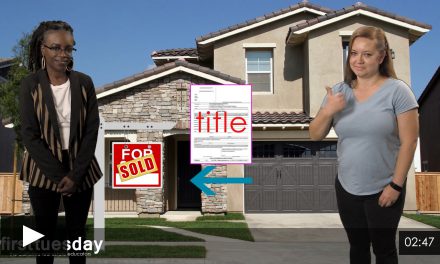According to a recent first tuesday poll, as well as past responses to the same question, our readers overwhelmingly disapprove of the idea that their clients — and by extension, the public at large — should have direct and unlimited access to their local multiple listing service (MLS).
MLSs — databases of local properties listed for sale — are owned and operated by real estate associations and are typically exclusive for use by Realtors® or other MLS subscribers who elect not to pursue association membership.
(A frustratingly widespread belief persists that agents and brokers need to be members of a Realtor® association to obtain access to their local MLS. However, any licensed agent may simply pay a fee for MLS access while skipping the fees and bureaucracy associated with membership in the California Association of Realtors® (CAR).)
However, an abundance of online listing aggregators like Zillow and Redfin widely disseminate listing information to the public, a practice that has prompted backlash from a number of real estate agents and brokers.
Why a private MLS?
The arguments in opposition to a free and public MLS are straightforward and understandable — many agents believe the removal of this information from the hands of industry professionals will render them obsolete. After all, a large part of an agent’s job involves leading their clients to new buyers or sellers. When the client can do this on their own, what’s the point of the agent?
But this argument misses the fact that agents provide so much more utility than simple information. For most homebuyers and sellers, the sale and purchase of a home is a rare, extremely significant personal financial watershed. They want someone with the experience and know-how to guide them through the process as they make these decisions.
Notwithstanding the extent of the public’s access to MLS information, no Zillow-style listing aggregator can replace the personal and professional guidance and expertise a qualified real estate agent offers.
In fact, giving clients access to listing information facilitates agent involvement in the process. At its inception, Redfin didn’t provide the same brokerage services they currently offer, and only made the shift to acting more like a traditional brokerage due to client pressure. Clients want more from their agents than just listing information — they want advice and expertise at their backs as they navigate a real estate transaction.
The Zillow monster
Fear of obsolescence isn’t the only valid dissent in play. Some rightly point out concerns about the accuracy of information published by listing aggregators — specifically Zillow.
While Zillow’s listings are contributed by brokers, agents, and sometimes directly from MLSs, its Zestimates — home value estimates based on the company’s algorithm — are not.
While there are clear advantages of keeping the public appraised on estimated property values, Zestimates are by definition not as accurate as the valuations of a property appraiser. This dissonance creates impractical expectations for both buyers and sellers.
Additionally, because of Zillow’s ubiquity, many agents and brokers feel they have little choice but to contribute to the listings on its platform.
Although these factors have stoked anxiety among members of the real estate industry over the idea of a public MLS, the reality is that agents and brokers needn’t worry. An agent’s expertise is always needed — even and especially when information is free and open for all to access.















Has anyone ever commented on the accuracy or lack thereof of Zillow’s estimate of value? We have a condo on the ninth floor of a Miami high-rise. I have been tracking Zillow’s estimate of value and that of the exact identical unit below us for several years. There have been no sales either unit for 10 years. There is often a variance of $30K to $70K in the values of the two units. They are in the $630K-$720K range.